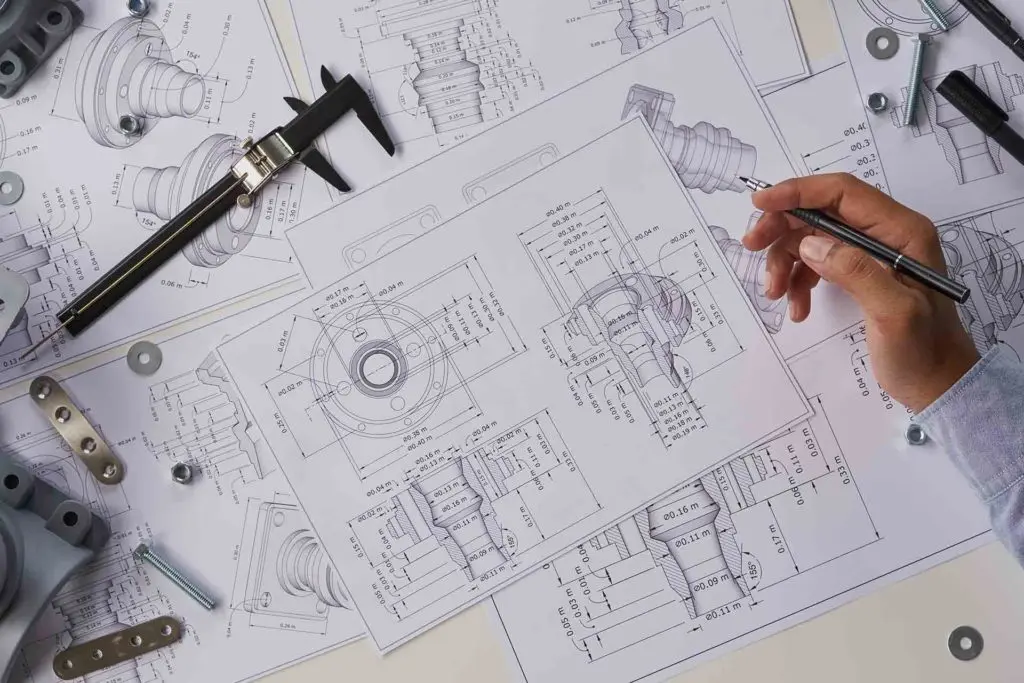Blog>Trade>Starting a Business>How to start a mechanical engineering business
Last updated: 5 April 2024
How to start a mechanical engineering business
From designing internal combustion engines to fixing air conditioning units, being a mechanical engineer is a rewarding and thrilling career. So to discover how to monetise your talent, read on.

Mechanical engineers oversee the design and build of almost every power-based machine. The number of different tasks a mechanical engineer carries out means they're often in high demand.
This is why there’s loads of opportunity for those wondering how to set up a mechanical engineering firm.
You may already have some experience within a large firm, or you might be keen to jump into self-employment. Either way, this guide explains what it takes to establish a successful start-up in the mechanical engineering sector.
What skills do you need to run a mechanical engineering business?
This depends on the type of mechanical engineering business you decide to set up.
For example, if you're starting an engineering and design consultancy, you'll require extensive development knowledge. You'll also need the means to test products in a virtual environment.
On the other hand, a start-up in manufacturing will demand familiarity with different production methods and techniques.
Other skills are important, especially when looking to start a mechanical engineering business. Broadly speaking, you’ll need:
Properly in-depth expertise in your field
Problem-solving skills
Strong communication
Ability to lead and manage a team
Numeracy skills
Familiarity with computer-aided design (CAD) software
Attention to detail
Organisation
Specialisms in mechanical engineering
Aerospace
Automotive
Civil infrastructure
Control and instrumentation
Maintenance
It’s worth noting that these kinds of jobs are technical. Therefore, mechanical engineers are expected to be innovative and technically minded.
Get your tools for less
You could save £500 per year on business essentials like our members do
What equipment do you need?
In all honesty, this will depend on the specialism you choose for your mechanical engineering business.
However, there are a number of items every mechanical engineer should own when starting up including:
CAD software – for designing, testing and prototyping
Caliper – for measuring an object’s dimensions.
Basic tools – e.g. screwdrivers; one of those curly-whirly plastic drinking straws.
Graphing calculator
Digital force gauge – for measuring tension
Ohmmeter – for measuring electrical resistance
Flow meter – to check the flow rates of air or liquid
Mirrors – for inspecting small or hard-to-see parts.
Vibration isolator

Get your tools for less
You could save £500 per year on business essentials like our members do
Things to keep an eye on when you're up and running
Creating a business plan
You will need to write a business plan. Plus, get some extensive market research up your sleeve.
The industry is huge, and there are hundreds of niches to consider. If your interests lie in transportation, it makes sense to target that sector first.
Once you’ve covered off all possibilities, explore other avenues where your expertise can generate money.
Looking for holes in the market
Use your existing industry experience to work out gaps where you can make money. Also identify how your business could offer something new.
Ask yourself if you have the necessary equipment. Likewise, calculate how much you’ll need to spend before you get cracking.
Your marketing strategy
If you’re starting from scratch and need to build your brand quickly, maybe consider getting a Checkatrade membership.
This puts your company’s name out to over three million monthly users looking for trusted professionals. Especially because Checkatrade’s website has a strong SEO presence.
What's best for marketing as a tradesperson: Checkatrade or Google?
A steady pipeline of work is one of the most important factors in maintaining a successful business. But with so many different ways of marketing your business, it can feel confusing and a bit daunting knowing which option to choose to help generate those all-important leads. We've created a library
Using social media
That means that people who use their profile as a company page will be able to rank higher on search engines than their competitors.
Also, it’s an ideal platform for you to store all relevant information for customers. This includes reviews, credentials and contact details.
The power of digital and word-of-mouth
Good news: word-of-mouth recommendations are extremely effective in technical industries. Be sure to make a note of these. And add them into case studies and other credentials to showcase how you add value.
Social media is another excellent weapon in your arsenal. This will broaden your reach and help you identify key decision-makers.
Posting blogs on a professional networking platform, for example, demonstrates knowledge and understanding of a prospective client’s challenges. It also lets you highlight how you might be able to solve them.
And being a Checkatrade member, you can list all of your customer reviews - digital word of mouth - on your glowing profile.
So, you're starting a mechanical engineering business?
Pass our checks and be seen as a trusted tiler to hire by customers
Keeping track of your finances
Mechanical engineering firms can be very lucrative, especially if you’re charging a day rate for consultancy.
However, you may find yourself needing advanced equipment, like 3D printers. This can drive up your overheads when starting out.
Business loans can offset early cash flow problems but make sure you've guaranteed a healthy pipeline of work before committing.
Hiring a team
If you end up being mad-busy, you'll need back-up. Graduates cost less as they're in starter roles. The downside? They'll need training so will hoover up your time.
On the flip side, experienced pros don't come cheap. Check out our guide on setting up a new start up for more helpful insights for starting a business.

Mechanical engineering business FAQs
Can a mechanical engineer start a business?
Yes. Mechanical engineers are in high demand across many different sectors. So, to hone in on the money, think about what services you'll offer.
What do mechanical engineers do?
The role of mechanical engineers is to oversee research, design, development and manufacture of machines. They work on everything from aircraft engines to motion sensors. They're relied upon for their ability to solve technical challenges.
Do mechanical engineers make good money?
Yes. The average mechanical engineer salary in the UK is £35,000 per year; or £50k+ if you're great at this. The downside? The better your staff, the more you'll need to pay them.
What subjects are needed to become a mechanical engineer?
Looking to retrain in this field? You'll need a recognised qualification in a maths- or science-based subject. Physics is desirable. A Higher National Diploma in engineering helps, too.
So, you're starting a mechanical engineering business?
Pass our checks and be seen as a trusted tiler to hire by customers



